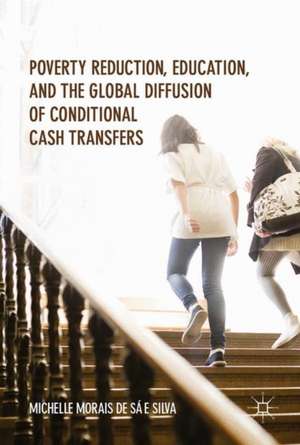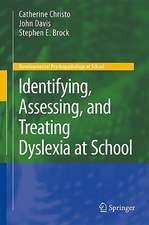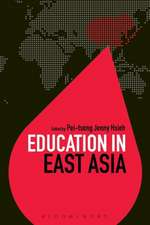Poverty Reduction, Education, and the Global Diffusion of Conditional Cash Transfers
Autor Michelle Morais de Sá e Silvaen Limba Engleză Hardback – 28 iul 2017
| Toate formatele și edițiile | Preț | Express |
|---|---|---|
| Paperback (1) | 176.74 lei 6-8 săpt. | |
| Springer International Publishing – aug 2018 | 176.74 lei 6-8 săpt. | |
| Hardback (1) | 583.28 lei 6-8 săpt. | |
| Springer International Publishing – 28 iul 2017 | 583.28 lei 6-8 săpt. |
Preț: 583.28 lei
Preț vechi: 686.21 lei
-15% Nou
Puncte Express: 875
Preț estimativ în valută:
111.61€ • 117.07$ • 92.91£
111.61€ • 117.07$ • 92.91£
Carte tipărită la comandă
Livrare economică 01-15 aprilie
Preluare comenzi: 021 569.72.76
Specificații
ISBN-13: 9783319530932
ISBN-10: 3319530933
Pagini: 184
Ilustrații: XXII, 184 p. 9 illus. in color.
Dimensiuni: 148 x 210 mm
Greutate: 0.4 kg
Ediția:1st ed. 2017
Editura: Springer International Publishing
Colecția Palgrave Macmillan
Locul publicării:Cham, Switzerland
ISBN-10: 3319530933
Pagini: 184
Ilustrații: XXII, 184 p. 9 illus. in color.
Dimensiuni: 148 x 210 mm
Greutate: 0.4 kg
Ediția:1st ed. 2017
Editura: Springer International Publishing
Colecția Palgrave Macmillan
Locul publicării:Cham, Switzerland
Cuprins
Introduction.- Part I. A Best Practice to Reduce Present and Future Poverty.- Chapter 1. Conditional Cash Transfer Programs and the poverty-reduction agenda.- Chapter 2. The International Diffusion of Conditional Cash Transfers.- Chapter 3. Framing the Study of CCT cases.- Part II. The Realities of CCTs in the Global North and the Global South.- Chapter 4. A Conditional Cash Transfer in the Big Apple.- Chapter 5. Money to Bear the Indirect Costs of Schooling.- Chapter 6. The Largest Conditional Cash Transfer in the World.- Part III. What Have We Learned?.- Chapter 7. Case comparison: CCTs’ divorce from education policy and long program lives.- Chapter 8. Conclusion: What has the future got for this global model?.
Notă biografică
Michelle Morais de Sa e Silva is Wick Cary Assistant Professor of International and Area Studies at the Department of International and Area Studies, University of Oklahoma, USA. Previously, she held the position of Head of Graduate Programs and Professor at Brazil’s National School of Public Administration (Enap). Morais was also Coordinator General for International Cooperation at Brazil’s Ministry of Human Rights (2011-2014). Before that, she had been a UNESCO staff member for six years. Morais has worked in countries like Angola, Colombia, Mozambique and Russia, besides Brazil. Her research agenda has been mostly focused on issues of international cooperation for development, policy diffusion, and international comparative education.
Textul de pe ultima copertă
This book explores Conditional Cash Transfers programs within the context of education policy over the past several decades. Conditional Cash Transfer programs (CCTs) provide cash to poor families upon the fulfillment of conditions related to the education and health of their children. Even though CCTs aim to improve educational attainment, it is not clear whether Departments or Ministries of Education have internalized CCTs into their own sets of policies and whether that has had an impact on the quality of education being offered to low income students. Equally intriguing is the question of how conditional cash transfer programs have been politically sustained in so many countries, some of them having existed for over ten years. In order to explore that, this book will build upon a comparative study of three programs across the Americas: Opportunity NYC, Subsidios Condicionados a la Asistencia Escolar (Bogota, Colombia), and Bolsa Famila (Brazil). The book presents a detailed and non-official account on the NYC and Bogota programs and will analyze CCTs from both a political and education policy perspective.
Caracteristici
Goes beyond the traditional economics-based perspective on Conditional Cash Transfers and offers a policy based perspective Addresses issues of political sustainability and policy coordination within the education field Builds upon a comparative study of three CCT programs across the Americas Includes supplementary material: sn.pub/extras












